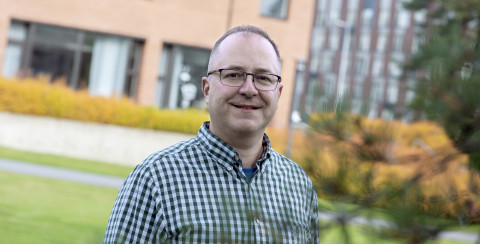University courses offered to students in general upper secondary education give them an opportunity to take a sneak peek to the future, while also allowing them to explore potential career and study paths. However, general upper secondary schools have a rather full syllabus as it is, so is there any room for extra courses?
The University of Eastern Finland has been collaborating with general upper secondary schools all across Finland since 2017. Students in the partner schools are offered an opportunity to complete university courses during their general upper secondary education via the Open University. Currently, the network comprises 41 general upper secondary schools.
The goal is to offer students an advance opportunity to learn about the academic disciplines they are interested in. This opportunity has been received with welcome, and the number of students enrolling on university courses has grown slightly from the previous year.
“Completing university courses while still in general upper secondary school is a good way to get a feel of what studying in a university is like. The experience can also guide students in their decision to continue studying a discipline, or to switch for another. This way, we get students who have already contemplated their choice of discipline fairly well,” Coordinator Tiina Juurela from the University of Eastern Finland says.
It is possible to complete individual courses while keeping the workload moderate, and this is an excellent opportunity to learn about the discipline one is interested in.
Tiina Juurela
Coordinator
The Finnish universities are currently in the process of reforming their entrance examinations, placing more emphasis on the grades awarded to students in their matriculation examination. This, in turn, will increasingly guide students in general upper secondary education to focus on the subjects they intend to take in their matriculation examination. The goal of the reform is to enhance students’ opportunities to secure admission to a university on the basis of good grades. This will also have an effect on general upper secondary school students’ time and studies related pressures.
“University courses should not, of course, feel like an extra burden. But it is possible to complete individual courses while keeping the workload moderate, and this is an excellent opportunity to learn about the discipline one is interested in,” Juurela notes.
The most popular courses have an average of ten general upper secondary school students on them every semester. A few students from the university's Teacher Training School in Joensuu have seized the opportunity. Usually, the most important reason for a lack of interest is a lack of time.
“University courses offered to students in general upper secondary education should either coincide with their study periods and classes, or be completely detached from them. In addition, it would be a good idea to break study modules down into packages of 1–2 credits. A good example of a well-designed package is the University of Eastern Finland’s Introduction to Law course,” Lecturer Visa Tuominen from the university’s Teacher Training School in Joensuu says.

Indeed, the Introduction to Law course is one the most popular courses. Other disciplines enjoying popularity among students are psychology, business studies, computer science, and nutrition. Students can choose courses from the Open University’s entire offering.
“Some courses are specifically designed for students in general upper secondary education, seeking to offer them an introduction to what it’s like to study the discipline,” Juurela says.
When students think about whether to enrol on a university course, they should weigh the benefits it gives them. The fact that the courses constitute part of academic degrees and students are awarded credits for completing them, is a concrete plus. According to feedback from students, getting to know the university and being able to see oneself as a university student, is also a big plus. Things learned on university courses have also come in handy in the matriculation examination.
However, extra courses are not for everyone, and students need to pay close attention to their time management and timetables. The partner schools’ and the Open University’s career counsellors play an important role in supporting students interested in, and completing, university courses.
In Joensuu, students in general upper secondary education also have access to other study opportunities through, e.g., collaboration with Karelia University of Applied Sciences.
“It is possible for students to complete the Hygiene Passport, the Alcohol Passport and the Occupational Safety Card alongside their studies. As many as 153 students from our school have already signed up for these. These courses coincide with their study periods and students can reap the benefits instantaneously when, for example, applying for summer jobs,” Tuominen says.
